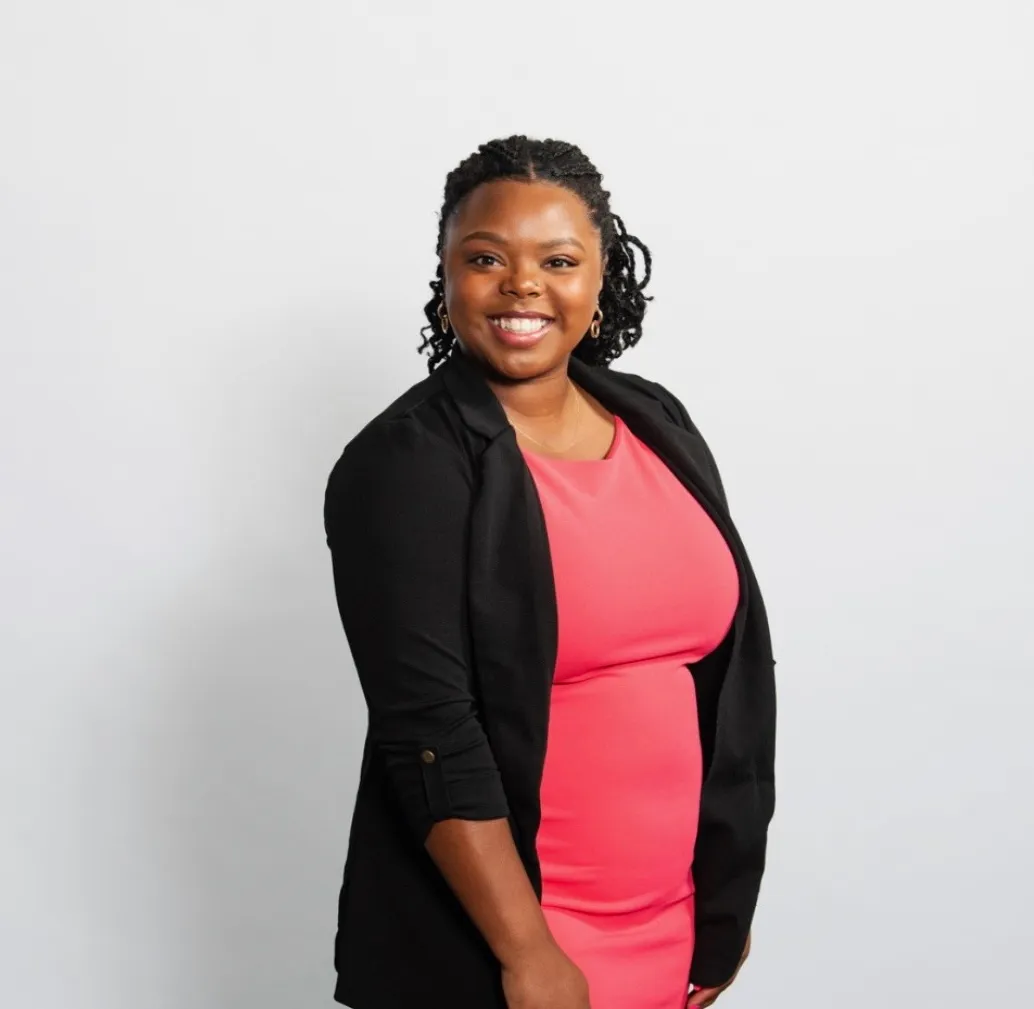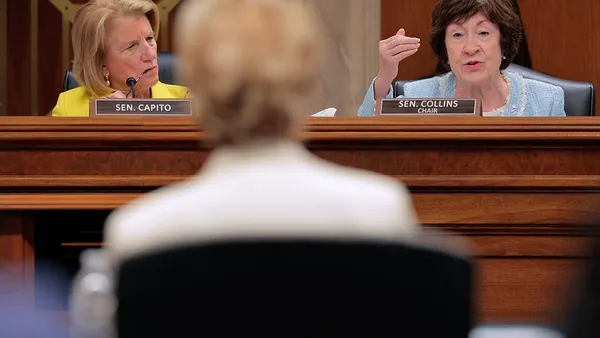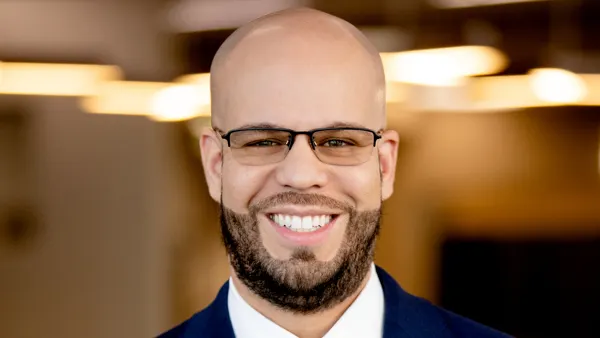This is the third installment in an ongoing series focused on examining solutions to the education workforce shortage. Here Staffed Up features an educator who quit teaching earlier this year. For another view of the situation, see a complementary Q&A with a longtime teacher who explained why she stayed in the profession.
Monique Clay’s teaching career was brief.
Clay began working in K-12 education as a paraprofessional in August 2020 in Statesboro, Georgia, at the height of the COVID-19 pandemic. She earned a teaching certification in 2021 and taught full time from May 2021 through February 2022, most recently in English language arts for special education students at Langston Chapel Middle School.
But after that short stint, she is now the assistant director of grants at the Boys & Girls Club of Lawrence, Kansas.
When she left her teaching job in the middle of the school year to move with her boyfriend to Kansas, Clay said the student behavioral issues she had faced — exacerbated by the pandemic — convinced her she would not continue teaching even after she moved.
We sat down with Clay to learn more about why she exited the profession, and what she feels K-12 leaders can do differently to retain the teachers they have — and recruit new ones.
Editor’s note: The following interview has been edited for brevity and clarity.
K-12 DIVE: When did you first realize you wanted to teach, and how did you enter the profession?

MONIQUE CLAY: So I never ever saw myself teaching — ever. I wanted to be a neurosurgeon. And then I wanted to be a counselor. I got a minor in psychology. When my boyfriend accepted his position at Georgia Southern [University] football as a full-time assistant strength coach, I moved to be with him, and I got a job working as a behavioral intervention technologist. And I hated it. It was the worst thing ever. It was super demanding.
So then I wanted a job that was closer to where we lived in Statesboro, and I got a job as a parapro[fessional]. It was quick, easy, and I needed something. From there, I already had my bachelor's. They [the school leadership] were like, “Well, you should be a teacher. You're qualified to do it. Do it.”
So I took all my classes. I took the teaching exam, passed, got a job teaching, and it was great. It was kind of more of a convenience thing, not necessarily like a lifelong goal. It was just the fact that it was there. It was a sufficient amount of money that worked with our lifestyle.
I loved it while I was doing it, for the most part.
And what was the moment that made you realize you needed to leave the teaching profession?
CLAY: One was definitely the fact that we moved in the middle of the school year to come to Kansas. And also just the behaviors. The behaviors were ridiculous.
I had a kiddo in my class, an 8th grader, who was just blatantly disrespectful and threatened my life, and at that moment, I was like, "Yeah, I'm done."
I knew we were going to leave Georgia in September. We just didn't know when. And so once [my boyfriend] figured out where his next position was going to be, that's when I started looking outside of the teaching field.
Was there anything you think district leaders could have done to keep you from leaving the profession?
CLAY: I will say this: If we did not move in the middle of the year, I would have finished out that school year and still would have left. In terms of district leaders, assistant principals, our board of education… handling the behaviors that we saw, putting in different interventions.
We have control over our kiddos’ Chromebooks, so we could see what they’re doing. And they would be in [in-school suspension] watching YouTube videos or playing games, watching movies. And for them, it was basically a free period. It wasn't a consequence. I'm not necessarily for suspension. I want the kiddos to be in school, but just like honing in on some of the actual disciplines that we said we were going to do.
Did working during the pandemic set off another reason for leaving? On top of that, did the pandemic contribute to these student behavioral concerns?
CLAY: Definitely. In 2020, they spent that whole year or half of that year at home. In 2021, they had the option to stay at home, go virtual, or come in. That really caused a lot of behaviors. I mean, being at home, you can do whatever you want.
And then, of course, there was no homework that was supposed to be graded, or we weren't letting kids fail. In 2021 and 2022, the assessments didn't count toward anything. And so what's holding our kiddos accountable for anything?
I was always preparing them for our assessments, and we did stuff that helped them grow. But if they didn't want to do work, I couldn't make them. And that was another reason why I wanted to get out of the classroom, because I was not about to continue to argue with 10-, 11-, and 12-year-olds about doing a math assignment or writing a sentence.
What do you think your former district is doing well to keep teachers or recruit new ones?
CLAY: Recognition was good. Our principal taught for 20 years and was really great with going to talk to you on personal levels, professional levels, because she understood all of the things that we were going through. We got lucky having her as our principal. She was great. So I think that helped me, because I knew I could always go to her. And then on my hallway… some of the 8th grade teachers, we always met weekly, and that was nice.
Based on your experiences, what would you say is needed to address teacher shortages across the country?
CLAY: Money — for everything that we go through. I think for the eight-hour days that we have with those kids, we should be making more than $30,000 a year.
I also feel like more, better disciplinary actions. I know that's not everywhere. It's not across the board where people aren't handling behaviors. I think there should be a better protocol across the board in terms of how to deal with specific behaviors. Make teachers feel like they're being heard when they do send you a kid that's disrupting the class. This kiddo should not come back down the hallway in five minutes and continue to disrupt my classroom, when I just sent him out 10 minutes ago. There should be a better form of communication and just holding our kids accountable.
I understand we don't know what these kiddos go through when they get home. Completely understand. However, when we're in the classroom, we should be doing work. Things should be used for a grade. As much as I would love to see our kids succeed — and I want them to succeed — we have to hold them accountable when they're failing.
Anything you want to add that we didn’t cover about your teaching experience and what can be gleaned from it?
CLAY: In terms of the teacher shortage, I think teaching has to be looked at as important before reform can happen. We're glorified babysitters.
I also feel like assessments need to be changed. One of the things as a special education teacher I learned was not all of my kiddos learn the same. Not all of them retain the information the same. Not all of them answer the same. And so, I will let some of my kids draw me the answer or write a story about the answer or answer it regularly or multiple choice. We can't ask all of our kids to do the same thing.














